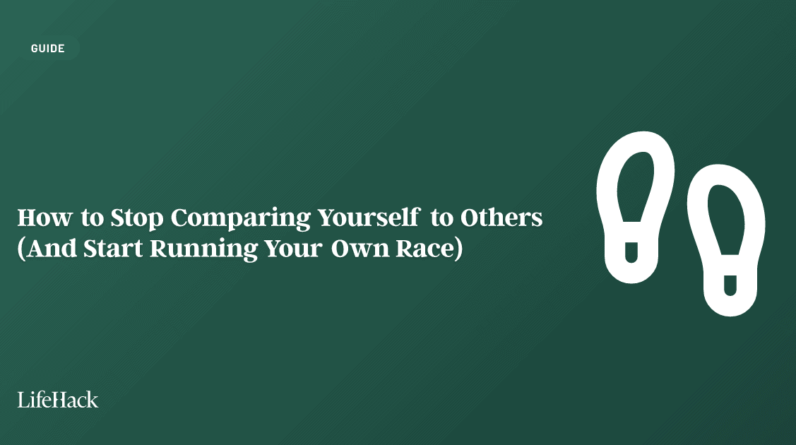
Generational trauma—those two words might seem heavy, maybe even a little intimidating.
But if you’ve ever felt like you’re carrying a weight you can’t quite explain, you’re not alone. Generational trauma is real, and it affects more people than we might think.
It’s the emotional baggage passed down from our ancestors, like an heirloom we never asked for but somehow ended up with.
This type of trauma isn’t just about what happened to us directly; it’s about the pain, fear, and struggles that our parents, grandparents, and even great-grandparents faced.
They lived through wars, oppression, systemic racism, and personal tragedies, and somehow, these experiences got passed down, embedded deep in our psyche.
So, why is it important to understand and confront generational trauma?
Because ignoring it doesn’t make it go away. Instead, it festers, showing up in our lives in ways we might not recognize—like anxiety, depression, or patterns of behavior we can’t quite shake.
But there’s hope. By acknowledging and working through this trauma, we can break the cycle and pave the way for a healthier, more fulfilled life, not just for ourselves, but for future generations too.
What is Generational Trauma?
Generational trauma, sometimes called intergenerational or ancestral trauma, refers to the emotional and psychological scars that are passed down from one generation to the next.
It’s like an invisible thread connecting us to the past, even if we don’t fully understand it. Imagine your great-grandparents living through a war. The fear, the loss, the survival instinct—they all left marks on them.
And while you may not have experienced those events firsthand, the emotional residue of those experiences can still influence your life today.
How Generational Trauma is Passed Down
But how exactly does this trauma get passed down?
There are a few ways.
One is through biology. Studies have shown that trauma can actually change how our genes function, a process known as epigenetics. These changes can then be inherited by future generations, affecting how they respond to stress or perceive the world around them.
Then there’s the psychological transmission. Children learn behaviors, coping mechanisms, and emotional responses from their parents, who learned them from their parents, and so on. If your grandparents coped with their trauma by shutting down emotionally, there’s a good chance that pattern could be passed down to you.
Lastly, societal norms and practices often reinforce this trauma. For instance, if a community has collectively experienced a traumatic event, like war or natural disaster, the resulting trauma can shape the culture, attitudes, and behaviors within that community, perpetuating the cycle.
Signs and Symptoms of Generational Trauma
So, how do you know if you’re carrying generational trauma?
The signs can be subtle but powerful.
Emotionally, you might experience deep-seated anxiety, depression, or a persistent sense of fear that doesn’t seem to have a clear source.
Behaviorally, you might find yourself stuck in destructive patterns—like self-sabotage, addiction, or difficulties in forming healthy relationships.
Physically, the trauma can manifest as chronic pain, fatigue, or stress-related illnesses. These are often the body’s way of expressing what the mind can’t quite articulate. If you notice these patterns in yourself and can trace them back through your family history, it’s possible that generational trauma is at play.
The Impact of Generational Trauma
Generational trauma doesn’t just affect individuals—it ripples through families and communities, shaping the way we interact with the world and with each other.
Effects on Individuals
On a personal level, the impact of generational trauma can be profound.
It can lead to mental health struggles like depression, PTSD, or chronic anxiety. You might find yourself grappling with issues of self-worth, constantly feeling like you’re not enough or that you don’t belong.
This trauma can also take a toll on your physical health. The stress and emotional burden can manifest in your body as chronic illnesses, autoimmune diseases, or other stress-related conditions.
The connection between mind and body is strong, and when the mind is burdened with unresolved trauma, the body often suffers too.
Effects on Families
In families, generational trauma often creates patterns of dysfunction.
Maybe you’ve noticed a cycle of abuse, neglect, or emotional unavailability in your family. These patterns aren’t just about individual choices—they’re often rooted in the trauma that has been passed down through generations.
Communication can become strained, with family members struggling to express their emotions or needs. Unresolved conflicts might linger, festering over time and creating deep rifts. And unfortunately, without intervention, these patterns can continue to be passed down, affecting children and grandchildren.
Societal Implications
On a larger scale, generational trauma can have significant societal implications. Communities that have collectively experienced trauma—whether through war, colonization, or systemic racism—often struggle with issues like poverty, violence, and addiction. The trauma doesn’t just disappear; it becomes embedded in the very fabric of society.
Addressing generational trauma isn’t just about personal healing—it’s about social justice. It’s about creating a more equitable and compassionate world where the wounds of the past no longer dictate the future.
Steps to Overcoming Generational Trauma
Healing generational trauma is no small feat, but it’s absolutely possible. It requires courage, self-awareness, and a commitment to breaking the cycle.
The first step in overcoming generational trauma is acknowledging that it exists. This might sound simple, but it’s actually one of the hardest parts. It means looking at your life and your family’s history with clear eyes and an open heart, recognizing the patterns that have been passed down.
Take time to explore your family history.
Talk to older relatives, if possible, and ask about their experiences. What were their struggles? What were their coping mechanisms? Understanding where you come from can provide valuable insights into the challenges you face today.
Self-Reflection and Inner Work
Once you’ve acknowledged the trauma, the next step is self-reflection and inner work.
This is where practices like shadow work and inner child healing come into play. Shadow work involves exploring the darker, often unexamined parts of yourself—those fears, insecurities, and painful memories that you might have buried deep.
Inner child healing, on the other hand, involves connecting with the younger version of yourself—the part of you that experienced or inherited this trauma. By nurturing this inner child, you can begin to heal those old wounds and break free from the patterns that have been holding you back.
Mindfulness and meditation can also be incredibly helpful in this process. These practices allow you to observe your thoughts and emotions without judgment, giving you the space to process and heal.
Breaking the Cycle
Breaking the cycle of generational trauma means taking intentional steps to create a new path for yourself and your family. This might involve setting boundaries with toxic family members, seeking therapy, or educating yourself about trauma and its effects.
It’s also about fostering open and honest communication within your family. Encourage conversations about emotions, fears, and past experiences. By bringing these issues into the light, you can begin to heal together.
Don’t be afraid to seek professional help. Therapists who specialize in trauma can provide valuable support and guidance as you work through these complex emotions. Support groups can also offer a sense of community and understanding as you navigate this journey.
The Importance of Healing Generational Trauma
The work of healing generational trauma is vital—not just for your own well-being, but for the well-being of future generations and society as a whole.
Personal and Family Healing
On a personal level, healing generational trauma can lead to a greater sense of peace, self-worth, and fulfillment. You might find that you’re better able to form healthy relationships, express your emotions, and cope with challenges.
For families, healing means breaking the cycle of dysfunction and creating a new legacy—one of love, support, and resilience. By doing this work, you’re not just healing yourself; you’re creating a healthier environment for your children, grandchildren, and beyond.
Societal Transformation
The impact of healing generational trauma extends beyond the individual and family. When we heal, we contribute to the healing of our communities and society as a whole. By breaking the cycles of trauma, we create a ripple effect—one that promotes greater understanding, empathy, and social justice.
This work is about more than just personal growth; it’s about building a better world for everyone. When we confront and heal our past, we pave the way for a brighter, more compassionate future.
Overcoming Generational Trauma With Courage and Awareness
Generational trauma is a complex and challenging issue, but it’s one that we can overcome with courage, awareness, and intentional action. By understanding what generational trauma is and how it affects us, we can begin to take the necessary steps toward healing.
This journey isn’t easy, but it’s one worth taking. As you work to heal yourself and your family, you’re not just breaking the cycle of trauma—you’re creating a new legacy, one of resilience, compassion, and hope.
Remember, healing is possible. It starts with acknowledging the past, embracing the present, and committing to a healthier, more fulfilled future—for yourself, your loved ones, and the generations to come.
Photo by Ben Mack







